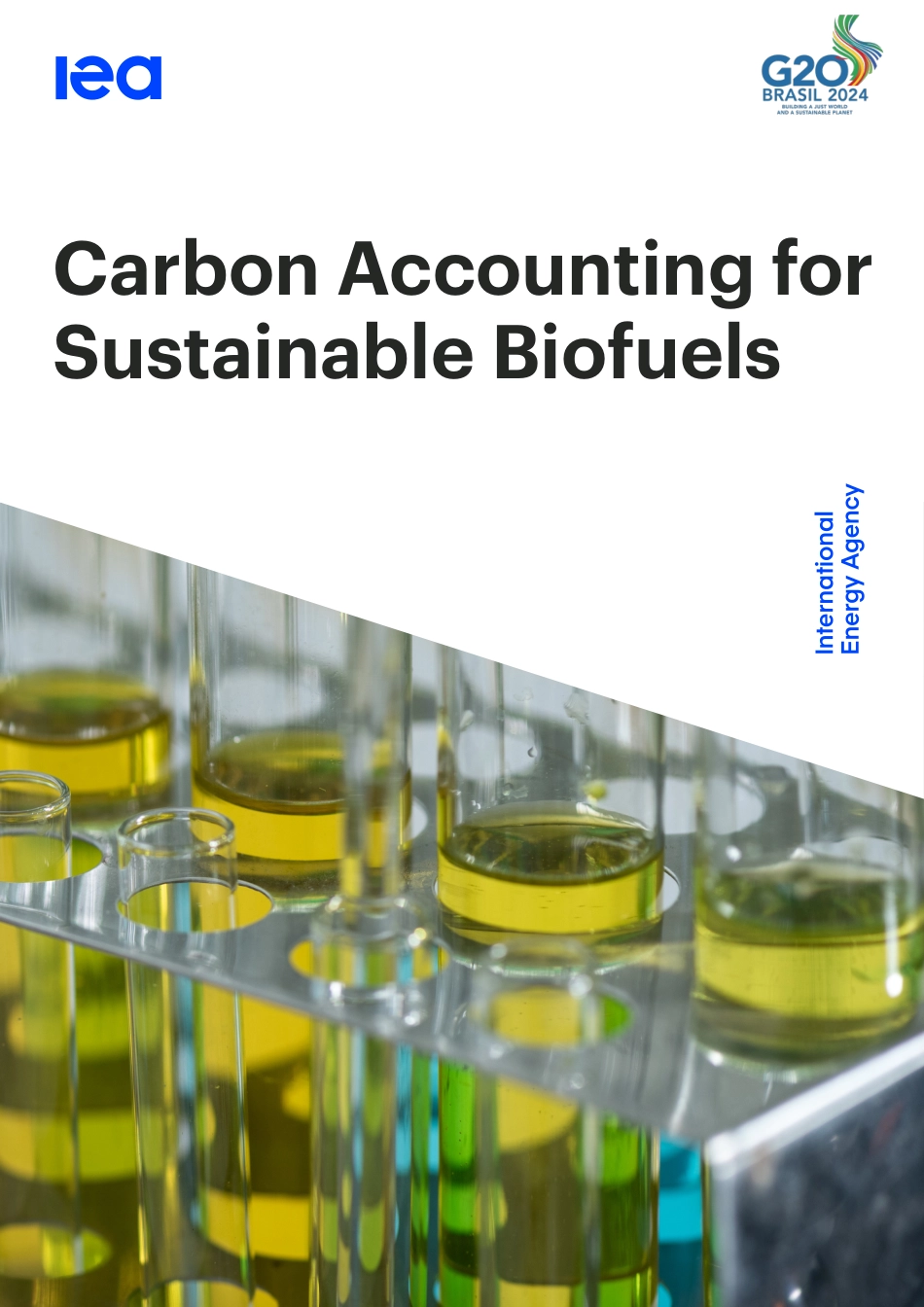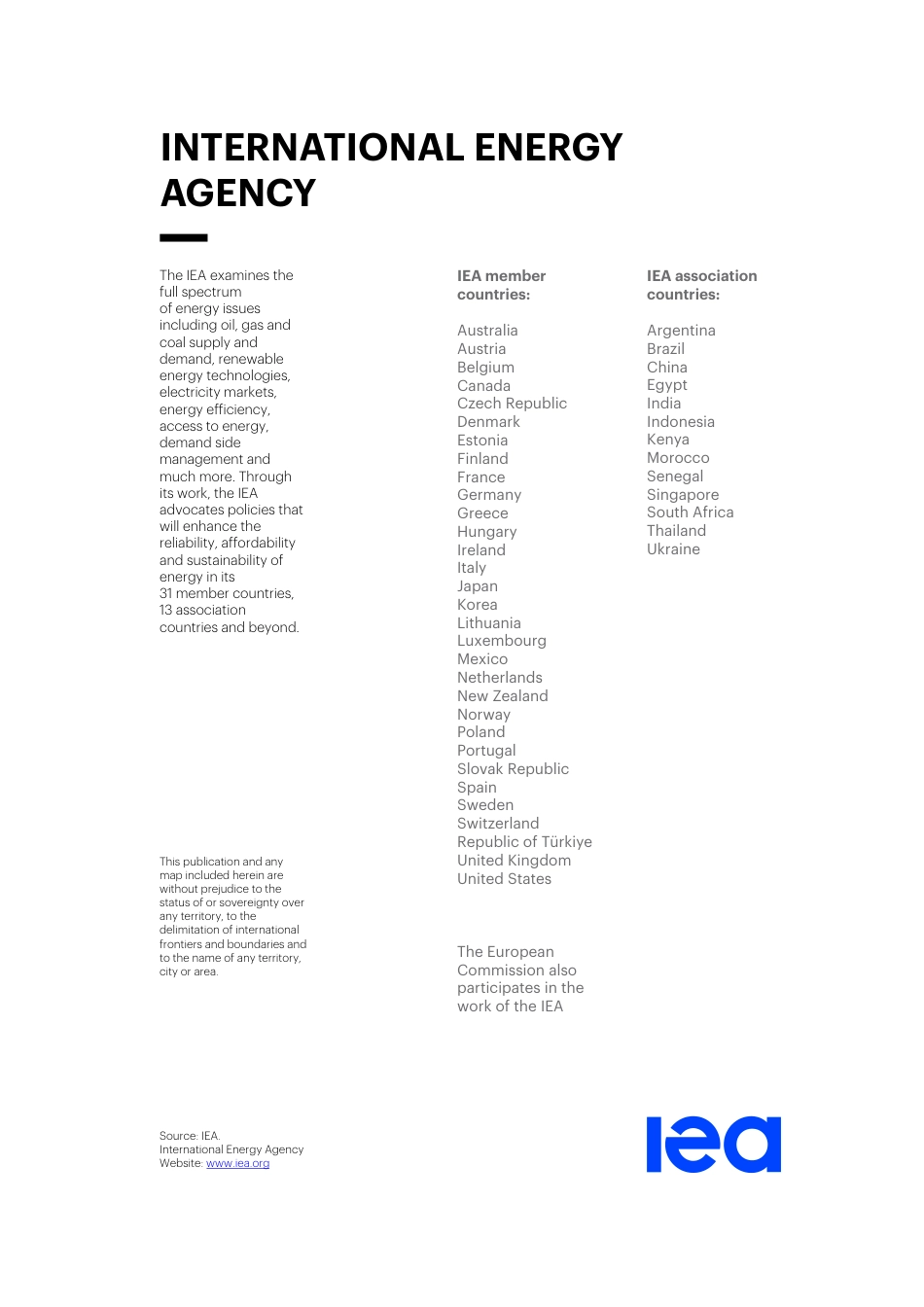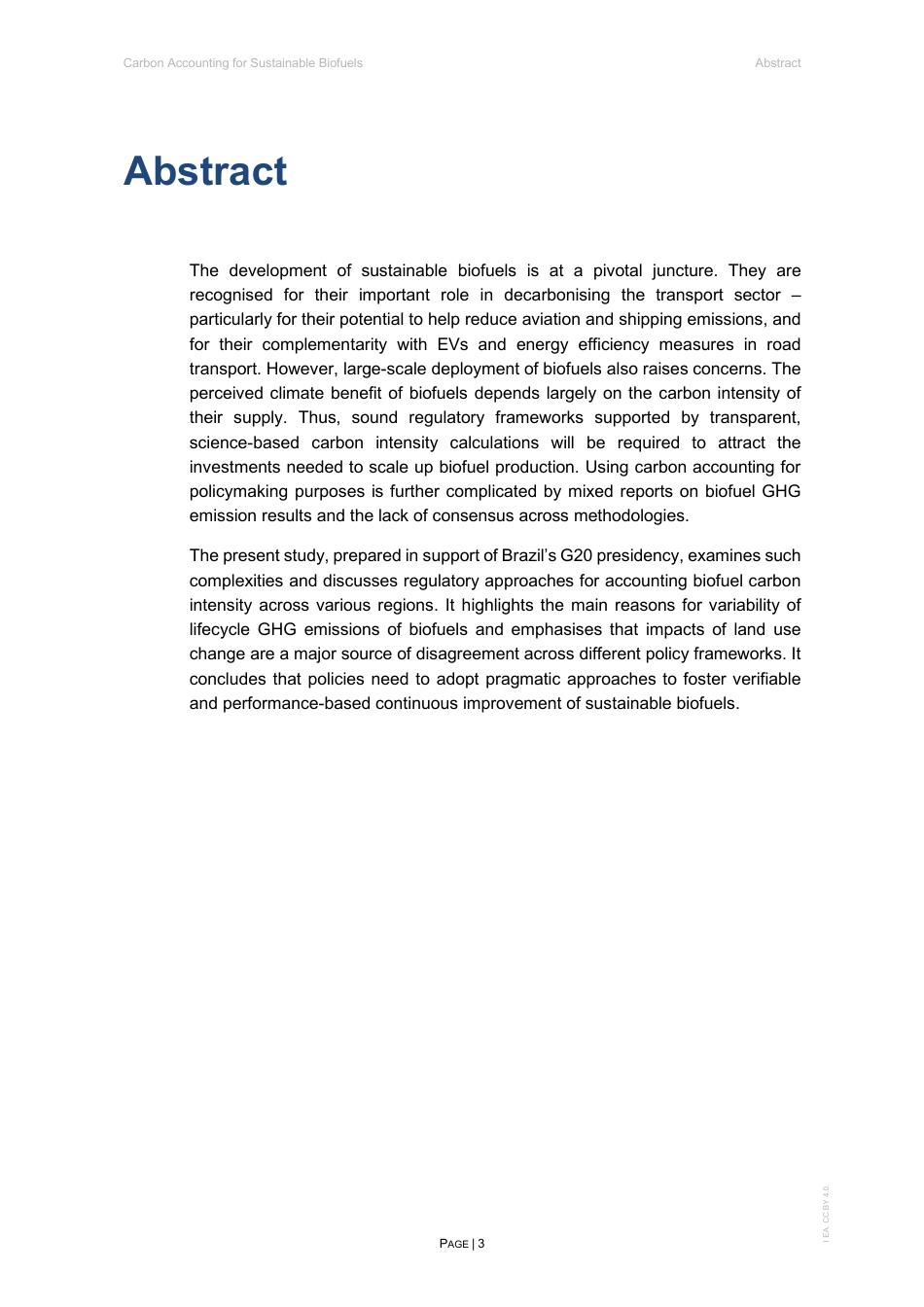CarbonAccountingforSustainableBiofuelsTheIEAexaminesthefullspectrumofenergyissuesincludingoil,gasandcoalsupplyanddemand,renewableenergytechnologies,electricitymarkets,energyefficiency,accesstoenergy,demandsidemanagementandmuchmore.Throughitswork,theIEAadvocatespoliciesthatwillenhancethereliability,affordabilityandsustainabilityofenergyinits31membercountries,13associationcountriesandbeyond.Thispublicationandanymapincludedhereinarewithoutprejudicetothestatusoforsovereigntyoveranyterritory,tothedelimitationofinternationalfrontiersandboundariesandtothenameofanyterritory,cityorarea.Source:IEA.InternationalEnergyAgencyWebsite:www.iea.orgIEAmembercountries:AustraliaAustriaBelgiumCanadaCzechRepublicDenmarkEstoniaFinlandFranceGermanyGreeceHungaryIrelandItalyJapanKoreaLithuaniaLuxembourgMexicoNetherlandsNewZealandNorwayPolandPortugalSlovakRepublicSpainSwedenSwitzerlandRepublicofTürkiyeUnitedKingdomUnitedStatesTheEuropeanCommissionalsoparticipatesintheworkoftheIEAIEAassociationcountries:ArgentinaBrazilChinaEgyptIndiaIndonesiaKenyaMoroccoSenegalSingaporeSouthAfricaThailandUkraineINTERNATIONALENERGYAGENCYCarbonAccountingforSustainableBiofuelsAbstractPAGE|3IEA.CCBY4.0.AbstractThedevelopmentofsustainablebiofuelsisatapivotaljuncture.Theyarerecognisedfortheirimportantroleindecarbonisingthetransportsector–particularlyfortheirpotentialtohelpreduceaviationandshippingemissions,andfortheircomplementaritywithEVsandenergyefficiencymeasuresinroadtransport.However,large-scaledeploymentofbiofuelsalsoraisesconcerns.Theperceivedclimatebenefitofbiofuelsdependslargelyonthecarbonintensityoftheirsupply.Thus,soundregulatoryframeworkssupportedbytransparent,science-basedcarbonintensitycalculationswillberequiredtoattracttheinvestmentsneededtoscaleupbiofuelproduction.UsingcarbonaccountingforpolicymakingpurposesisfurthercomplicatedbymixedreportsonbiofuelGHGemissionresultsandthelackofconsensusacrossmethodologies.Thepresentstudy,preparedinsupportofBrazil’sG20presidency,examinessuchcomplexitiesanddiscussesregulatoryapproachesforaccountingbiofuelcarbonintensityacrossvariousregions.IthighlightsthemainreasonsforvariabilityoflifecycleGHGemissionsofbiofuelsandemphasisesthatimpactsoflandusechangeareamajorsourceofdisagreementacrossdifferentpolicyframeworks.Itconcludesthatpoliciesneedtoadoptpragmaticapproachestofosterverifiableandperformance-basedcontinuousimprovementofsustainablebiofuels.CarbonAccountingforSustainableBiofuelsAcknowledgementsPAGE|4IEA.CCBY4.0.AcknowledgementsTheCarbonaccountingforsustainablebiofuelsreportwaspreparedbytheRenewableEnergyDivisionoftheDirectorateofEnergyMarketsandSecurityoftheInternationalEnergyAgency.ThestudywasdesignedanddirectedbyPaoloFrankl,HeadoftheRenewableEnergyDivision.TheleadauthorswereAnaAlcaldeBáscones,whoalsocoordinatedthereportproduction,andIlkkaHannula.OtherauthorswereJeremyMoorhouseandTorilBosoni(HeadoftheOilMarketDivision).ThereportbenefittedfrommajoranalyticalcontributionofexternalLCA-expertconsultantsStefanMajerandSophiaBothefromDBFZ,theGermanInstituteforBiomassResearch.WealsothankChristianeHenningandKatjaOehmichenfromDBFZfortheirsupport.ThereportfedextensivelyondiscussionsandfeedbackgatheredatanIEAworkshoponSustainableBiofuelsheldinParis,France(April2024),andseveraleventsorganisedbytheCEMBiofuturePlatformInitiativeatthe3rdmeetingoftheG20EnergyTransitionsWorkingGroupi...



 VIP
VIP VIP
VIP VIP
VIP VIP
VIP VIP
VIP VIP
VIP VIP
VIP VIP
VIP VIP
VIP VIP
VIP